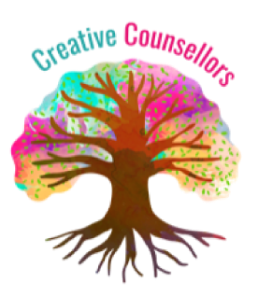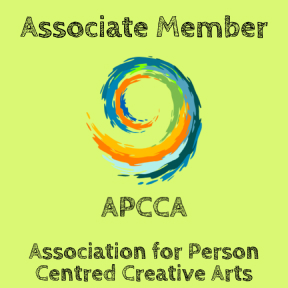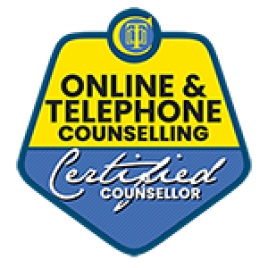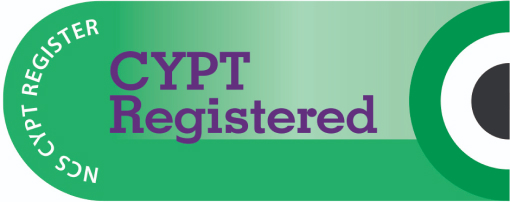Counselling for children and young people

If you are a parent
Are you concerned for your child/young person? Some examples that often trouble a parent include (this list is not exhaustive):
- Your child/young person is appearing anxious or hypervigilant
- They have experienced something traumatic like a death, abuse, or an accident
- They are withdrawn and find it difficult to express how they are feeling
- They express worry about an event or something happening out with their control
- They have expressed feelings that they want to harm themselves or taken action to
The basis of counselling is the forming of a therapeutic relationship which can take time. Once the relationship is underway, therapy is unique. I would work with whatever your child/young person brings to the session and there is no requirement for them to tell me everything. Often some creative element is used if okay with your child/young person and this can help work out their feelings and difficult emotions as words can be tricky sometimes.
Initial contact
Get in touch and we can have a chat initially. You can show your child/young person the video on my home page which allows them to see and hear me. It would be useful to explain to them that counselling is normal and lots of children and young people see a counsellor. There is a counsellor in many schools in fact.
I then offer an initial assessment with the child/young person and if they agree, it can be useful for you to be part of this. It would be a 50 minute session where I can assess the hopes and aims of the therapy and work on what they would like to bring/how they would like to use the sessions. This offers a chance for the child/young person to see if they are happy to work with me and in turn, I can determine if I have the appropriate experience to work with them. If I feel this isn’t the case, I will do my best to refer on.
If you are a young person
Taking a step towards finding a counsellor is a brave move so well done for reading this. There are many reasons that young people will want to speak with a counsellor. Some examples include:
- You feel you can’t cope with life as it is
- You feel alone or victimised at school, college or home
- You feel confused about your relationships
- You often feel anxious or stressed. This could include symptoms of feeling sick, racing heart, scared and down
- You want to or do self harm
- You have ideas of killing yourself or rather you just don’t want to be here
I work in a high school and have experience working with young people. Below are some questions you may be wondering. I will work with you in ways that you are drawn to such as talking, sand, creative materials, and drawing. Sometimes using creativity in sessions help when words are difficult and week by week, we will move towards making sense of what you are finding hard. We all experience emotions that can be tricky to handle. Often, we don’t want to feel them or are unsure how to deal with them; these include anger, sadness, frustration, and anxiety.
How can counselling help me?
Talking or working with someone you trust can help. This trust is built up over a number of weeks and your relationship with a counsellor is often unique. I offer a safe, nurturing space and what you bring to our sessions will stay safe unless I am concerned for your safety.
What happens during sessions
You might want to chat, or use other ways to work through your emotions such as cards, stones or drawing. The session will last 50 minutes and will be the same time and day each week.
What about after or between sessions?
Many people ask this question and it is important to note that you may feel overcome with what comes up during sessions. This is a sign that you are working through tricky emotions. Please let me know if this happens and we can work on what would help you during sessions.
You may feel particularly tired and again this is a sign that you are working hard, take some time out to look after yourself.
If you feel at any point that it is too much or that you no longer want to come, just let me know. That is okay too. There will be tools that I can recommend to you otherwise.
Will people know that I have seen a counsellor?
If you have contacted me yourself then no one will know. Only in circumstances whereby someone else has got in touch on your behalf then that person will know you are seeing me.
What do I tell a counsellor?
Whatever you feel comfortable telling me. This will vary from week to week and on how you feel. Some people arrive at a session not knowing what to say initially. When we use tools to express how you are feeling such as drawing or using sand, your troubles and worries can come out. Other young people come to a session having experienced something that week that they wish to talk through.
It is important to remember we are all different and all experience life in different ways. There is no right or wrong way to do counselling.
More information on mental health for young people can be found on the Young Minds website. I also like Smile, who are based in West Lothian. Take a look at their website which is full of useful resources including Youtube videos about stress, anxiety and bereavement to name a few.
A little about me
I have worked with children and young people for a cancer charity Jaks Den. Alison, her team and more importantly the families that I connected with at Jaks Den, truly inspired me to work with children and young people. Each and every person I work with inspires me in every session. Everyone has a strength within them that I see and that has helped them survive adversity in some way. I believe that we all have a purpose and a path to follow and my path is working with people to help them see their own light.
I currently work in a high school with young people who bring various troubles and worries not to mention an amazing strength that sometimes they need help to see. I also work in private practice with children as young as 9, young people and adults.
I am a member of the National Counselling Society (NCS) and I am on their children and young people register, you can view my profile for here. This means that I work ethically and follow their code of ethics.
Should you wish to make a complaint, I would kindly invite you to speak with me first. The NCS does have a complaints procedure which you can view here.
All that is left for me to say is don’t hesitate to reach out even if it is just to chat with me for a few minutes to find out what I sound like. Get in touch, your mental health is important.
With warmest wishes
Debbie





